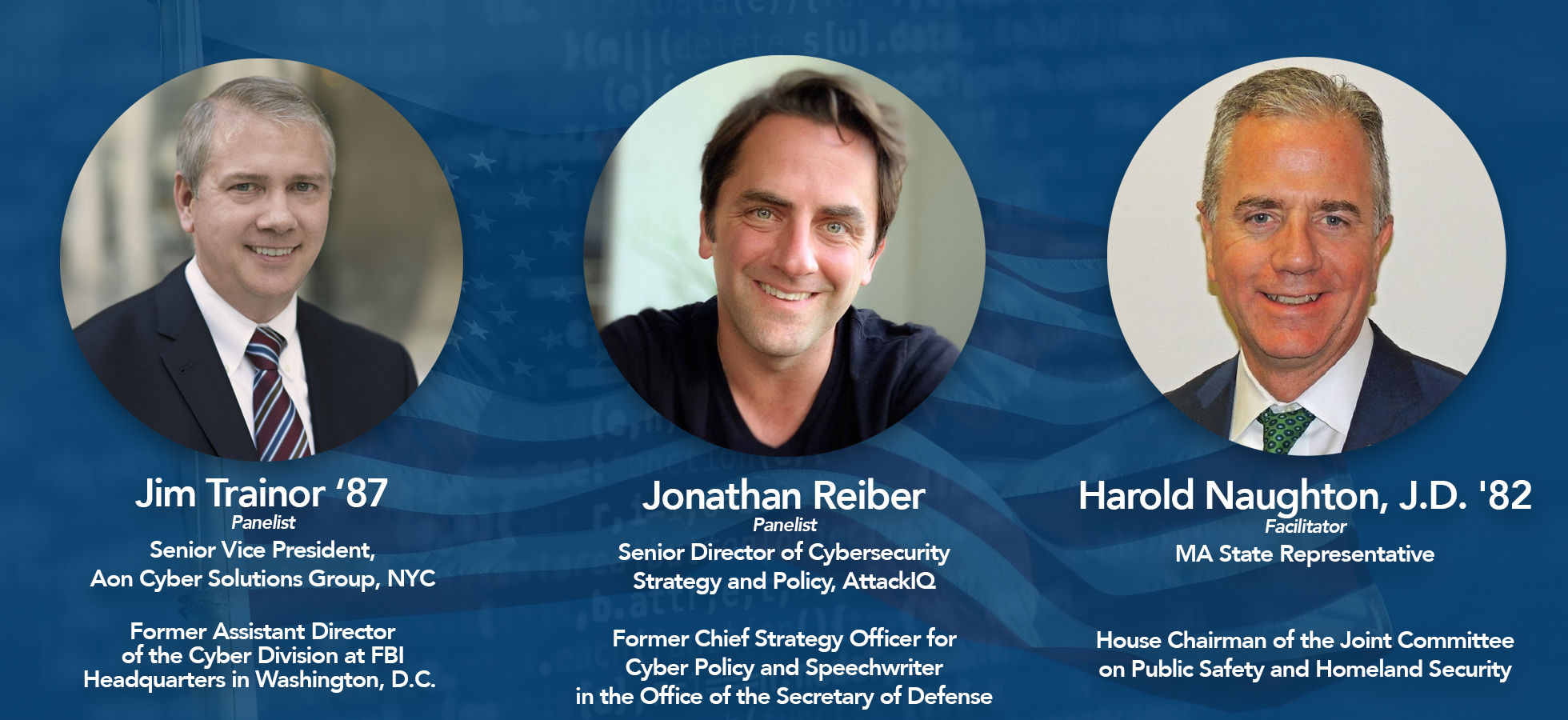How Will Cyber Attacks Impact the 2020 Election?

Panel to feature former U.S. government cybersecurity advisors Jim Trainor ’87 and Jonathan Reiber
As the 2020 Presidential Election draws near, fears of cyber threats and voting fraud are at the forefront of Americans’ minds and closely followed by the media. How can the United States prevent foreign entities from influencing the democratic process? Assumption will host a virtual cybersecurity forum, “Cyber Threats and Election 2020,” featuring panelists and former U.S. government cybersecurity advisors Jim Trainor ’87 and Jonathan Reiber who will engage in a timely discussion on how foreign governments have and may influence the outcome of the 2020 Presidential election. The panel, which will be moderated by MA State Representative Harold Naughton, J.D. ’82, House Chairman of the Joint Committee on Public Safety and Homeland Security, will take place virtually on Wednesday, October 7, beginning at 7 p.m.
While serving the U.S. government in the Federal Bureau of Investigation and U.S. Department of Defense both Trainor and Reiber were on the forefront of cybersecurity and saw first-hand the Russians’ attempt at influencing the 2016 Presidential Election. From that experience, they will explore lessons learned and what we can expect to see in 2020 and in future elections.
Trainor has nearly three decades of public service at the federal and state level, with operational experience in cyber, counterintelligence, counterterrorism, intelligence and criminal matters, including service as special agent and senior executive in the cyber division at the Federal Bureau of Investigation (FBI). He currently serves as senior vice president for Aon Cyber Solutions Group in New York City.
Reiber, a senior director of cybersecurity strategy and policy at AttackIQ, served as the former chief strategy officer for cyber policy and speechwriter in the Office of the Secretary of Defense. During his career, Reiber has helped manage large bureaucracies and advised cabinet officials and senior leaders across the U.S. government, foreign governments, and the private sector.
“After the controversy regarding tampering in the 2016 election, Americans are aware of the cyber threats facing the upcoming election in November, though may not be able to fully grasp the complexity of the situation,” said Raymond Albert, Ph.D., professor of cybersecurity and director of Assumption University’s Center for Cybersecurity. “Recognizing the importance of this issue, we felt we had a responsibility to educate the public on this critical issue. The facts behind the situation and how and what is being reported in the news might come off as contradictory or difficult for many voters to comprehend.”
Following the discussion, panelists will be available for a live question-and-answer period. The event is free and open to all, but registration is required. For more information visit: https://s1auviv.wpengine.com/news-and-events/events/cybersecurity-forum-cyber-threats-and-2020-election
The event is the second in a series of non-partisan political events leading up to the 2020 Presidential Election and sponsored by the University. Other events include: “Politics and the Suffrage Movement” on October 14; “Why is the Electoral College Important” on October 14; and “The Lost Soul of the American Presidency” on October 21; and “Why is the Electoral College Important?” on October 28. All events are virtual and begin at 7 p.m. Visit assumption.edu/events for more information.
